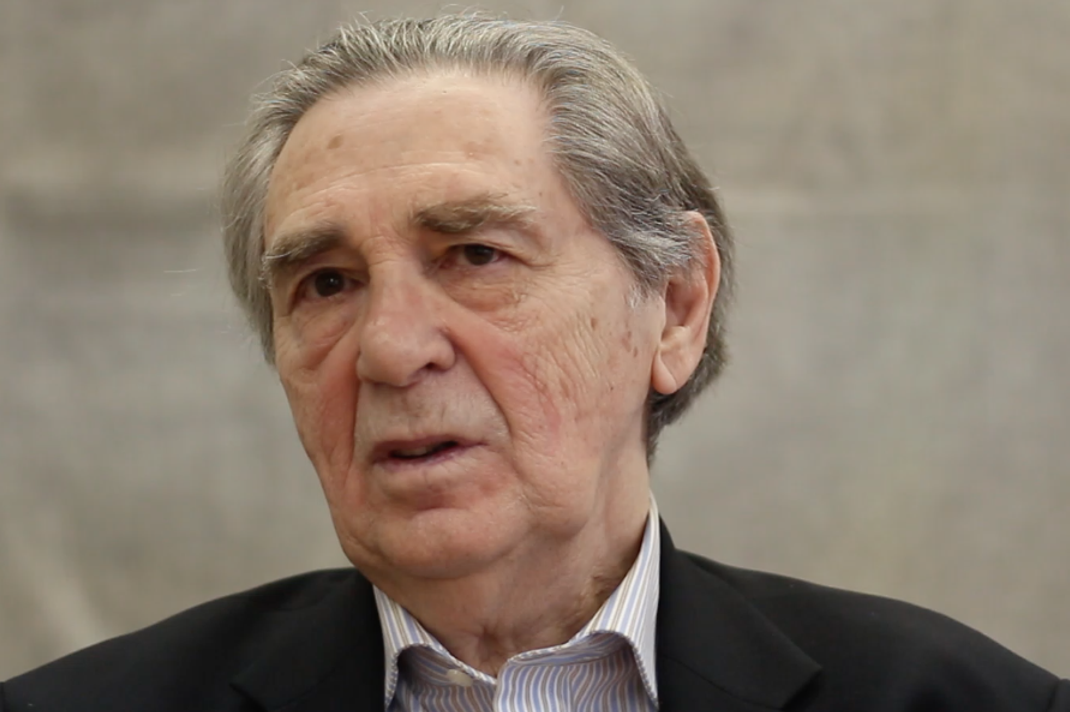Jozef Cipin
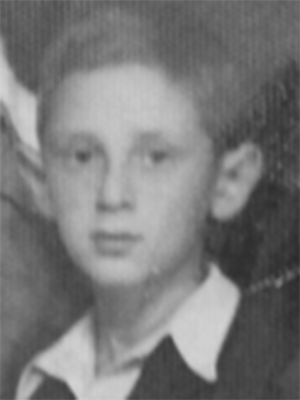
Born: Bánovce nad Bebravou, Czechoslovakia, 1934
Wartime experience: Camps
Writing partner: Carol Ann Davidson
Jozef Cipin was born in Bánovce nad Bebravou, Czechoslovakia (now Slovakia), in 1934. He and his family experienced rising antisemitic persecution as Slovakia declared independence and aligned itself with Nazi Germany.
In 1941, Jozef’s father, a carpenter, was sent to be the lead builder of the Nováky forced labour camp, and in 1942 Jozef, his mother and two of his sisters were sent to join him as prisoner workers in the same camp. On August 29, 1944, Jozef and his family were liberated during the Slovak National Uprising by Slovak partisans. He hid with his family in partisan villages and in the mountains. Eventually, Jozef was recaptured and taken to the Sereď forced labour camp. On March 9, 1945, he was sent to the Kinderheim, children’s home, in the Theresienstadt ghetto and concentration camp, where he was liberated by Soviet soldiers on May 9, 1945. He and his family stayed in communist Czechoslovakia after the war; he went back to school and met and married Helena, with whom he had two children. Jozef left Czechoslovakia with his wife and children in 1968 and lived in Belgium for many years. Helena passed away in 1981, and in 1982 Jozef immigrated to Canada, where he met his second wife, Brenda.
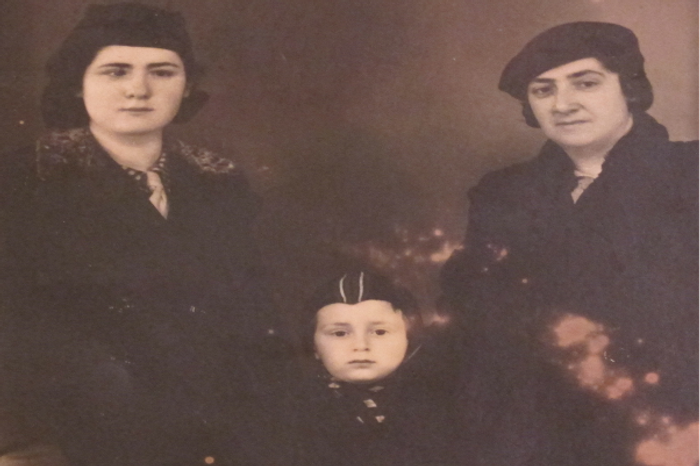
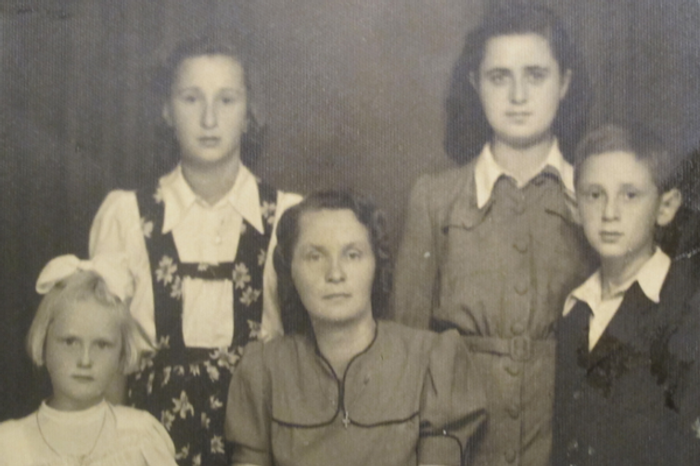
Caught
While I was looking in the storage building for something to wear before going to find the doctor, I suddenly heard someone say, “Hands up!” I turned and saw two men, an SS man and a Slovak fascist in uniform. The Slovak boy was maybe fourteen years old. He called me a “Jew partisan,” and then they took me a few hundred feet to the barricade at the end of the street. I stood there with them for about an hour, because the two soldiers couldn’t leave their post until someone came to replace them. I had heard many stories about how to deal with the Germans while I was living with the partisans. Because of these stories, I felt like I was prepared and understood how to behave, even as young as I was. I didn’t cry. A group of ten or fifteen women on the street tried to convince the men to let me go. They said, “This is a child. What do you want with this child? Let him go.” After a while, the soldiers were tired of it and started to shoot their guns into the air and the women went away.
When new soldiers came to relieve the men who were holding me, they then took me to see their commanders elsewhere in the same town. None of them knew what to do with me, but the fourth was a member of the Gestapo. The Gestapo knew what to do with kids like me. They often just killed us. They treated me like I was an object they took from the enemy, like the spoils of war, and it sounded so funny to me: here I was, a boy who was sick, and they thought I was a victory. I smiled at that. I will never forget that. The final Gestapo commander was in the house of the doctor who had delivered me as an infant; if it weren’t for that doctor, I wouldn’t have survived birth. I knew that house very well. The chief of the Gestapo was staying there because it was such a nice house. He began interrogating me by pulling me by the clothes on my chest and pointing his gun at me. He said, “If you don’t tell me the truth, I will kill you.”
I knew what to say. He asked me where my parents were, and I told him that I didn’t know. I said I had lost them in the mountains and then went to a village and survived by working for the villagers. He asked, “Where are the Jews? Where are the partisans?” and I said I hadn’t seen any of them. He asked me again, and I answered the same. He slapped me repeatedly but saw that beating me harder would kill me. I was very weak, so they didn’t do too much more to me. But I will never forget the look in his eyes from about four inches away. It gave me nightmares. He was like a wild beast — a wild beast that wanted to kill and eat me. I understood what he asked in German but I didn’t let on that I understood.
There was another SS officer there who was from the Sudetenland and so spoke other languages, and I made a bit of theatre by asking him to translate. He asked me how I got the wound by my left eye, and I said that it had happened in the village when I was working for a peasant. That made them laugh. They were laughing at me because they thought I was a stupid Jew who couldn’t even work with a pitchfork. I couldn’t believe it. There were about three or four people laughing at me.
They then put me in a jail room big enough for about twenty people. The Gestapo chief was strange. He came into the jail in the morning and the afternoon to be shaved by one of the inmates. All kinds of people were in that jail: thieves and partisans. He came twice to examine my face. He held my chin and moved my head from side to side. After the war, I thought about why he would do that. There were two possibilities I could think of: he was either looking for “racial features” or he thought I looked like someone in his family. The second seems likelier, because they didn’t kill me.
The chief jailer asked me to bring firewood to his apartment one day. When I arrived, there was our neighbour Mrs. Subova. She knew him and had brought some food for me.
There was another Jewish boy, about eighteen years old, in the jail, and one day they took us away together. A Slovak SS man from the jail was ordered to take us by train to the Sereď labour camp. The man’s parents lived in that town, and he was taking a holiday there. Two weeks after we left the jail, the SS found a Jewish family in the town and killed them all. Because of this, after the war my parents were sure I was dead. Mrs. Subova told them she had seen me in the jail and then I was gone. She thought I’d been killed. After the war my father went around to all the open mass graves looking for my body. I didn’t get home until the second half of June, more than a month after the war ended.
On our long train ride to Sereď, we stopped at another town on the second day of travelling. Our SS guard became friendly with a German man who got on there, and they drank hard liquor the whole way. When we had to change trains, we had to hold our guard up because he was so drunk. By the time we arrived at the Sereď camp, he couldn’t even walk. He wasn’t even able to hold his own rifle. I said to the eighteen-year-old, “He doesn’t even know his name. We could take his rifle and go.” My instincts told me not to do it by myself, because I knew the chances of my surviving alone were not good. But my fellow prisoner didn’t want to do it, so we didn’t escape. I didn’t know what to do; it was an unbelievable scene. There we were, helping this fascist guard bring us to the camp. It was nonsense; you might say it was crazy.
I don’t remember our arrival at the camp very clearly, but I was surprised that they didn’t give him hell. They just laughed at him. He was like an ape, intoxicated and ridiculous.
I know it is controversial to say this, but that camp saved my life. I was put in the hospital there for a few weeks and came out feeling much better. I had arrived in Sereď on January 24, 1945, and Auschwitz was liberated on January 27, 1945. I was saved because of Auschwitz’s liberation; the transports from Sereď to Auschwitz were stopped. If I had been in their hands two months earlier, I wouldn’t be alive.
If I had been in their hands two months earlier, I wouldn’t be alive.
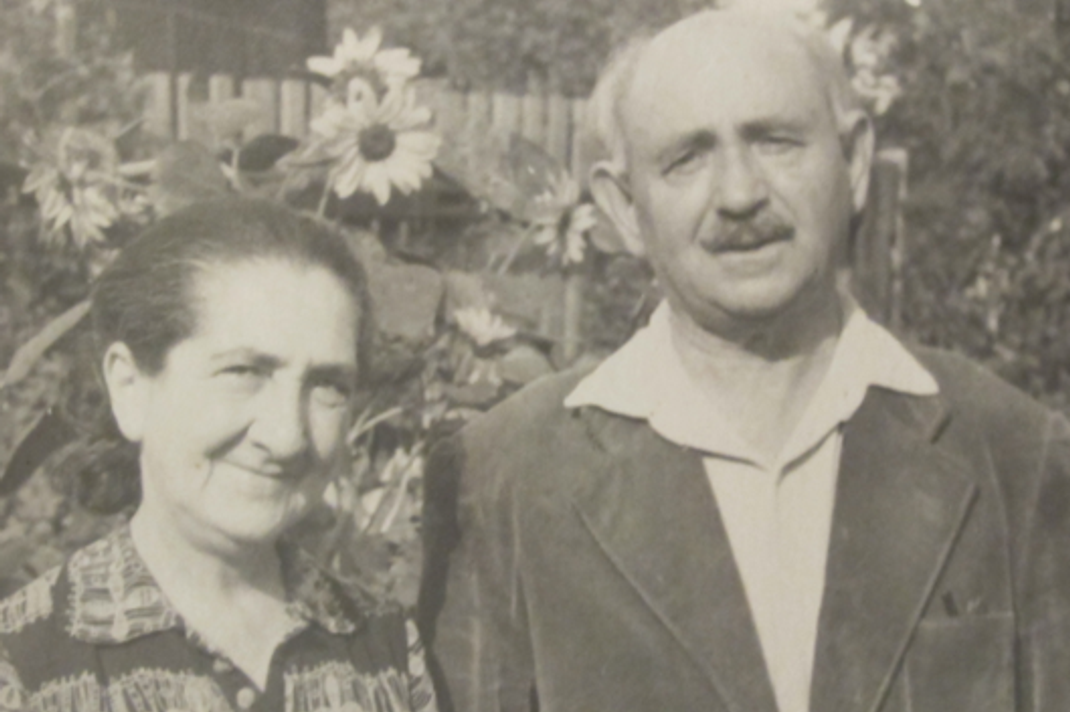
Liberated
I had been sent to Theresienstadt — it was a propaganda camp, where the Germans were pretending to the International Red Cross that all was well. German Jewish soldiers from World War I who had been decorated with medals were put in this ghetto and concentration camp instead of being sent immediately to Auschwitz, but they were killed later. There was a mixture of people from all over Europe.
One day the guards said to us, “Children, tomorrow people will be coming here, and if they ask you questions you have to say ‘everything is good.’ If they ask if you have enough food, say yes. If they ask if the food is good, say yes. If you say something wrong, you will be punished, even killed.” What I remember mostly is that the whole time I was hungry, hungry, hungry, because they gave us the bare minimum of food. I was there from March 13, 1945, to the end of the war. They hadn’t kept children long at Theresienstadt — they sent them to Auschwitz.
One day all the guards in Theresienstadt were gone, and we saw Soviet Red Army tanks coming. It was around lunchtime, and we discovered that none of the guards were there. That was it; they were gone, and it must have been the end of the war. We went out, and the Red Army soldiers were giving us chocolates, food and cigarettes, which I took so I could get other things in exchange for them. I stopped, looked around and said, “I’m free, I’m free and I’m a human being again.” I’ll never forget that moment. It’s impossible to describe it. I was eleven years old, and my mind was like somebody today aged eighteen or twenty. It was such a fantastic feeling. If I were Beethoven, I would compose the tenth symphony about what it meant to be liberated.
I had to stay in Theresienstadt for a few more weeks due to a typhoid fever outbreak. I also had to wait until someone could travel with me, because they wouldn’t send an eleven-year-old boy anywhere on his own. The transportation system in Czechoslovakia had been destroyed by the Germans as they retreated. They cut the wooden railway ties to make it impossible for the Russians to travel by train. A woman said she was going in the direction of my home and took me beyond the border between Moravia and Slovakia. I waited there for some time until someone else took me home. It took a long time. It was the second half of June, and in all this time my father had been looking for my body. It was a beautiful feeling to find my parents and my two sisters alive. I was told that Alisa would not be coming home because she had been murdered in Auschwitz. My parents were happy on the one hand, but also felt a deep wound that their oldest daughter hadn’t survived, a wound that never healed.
